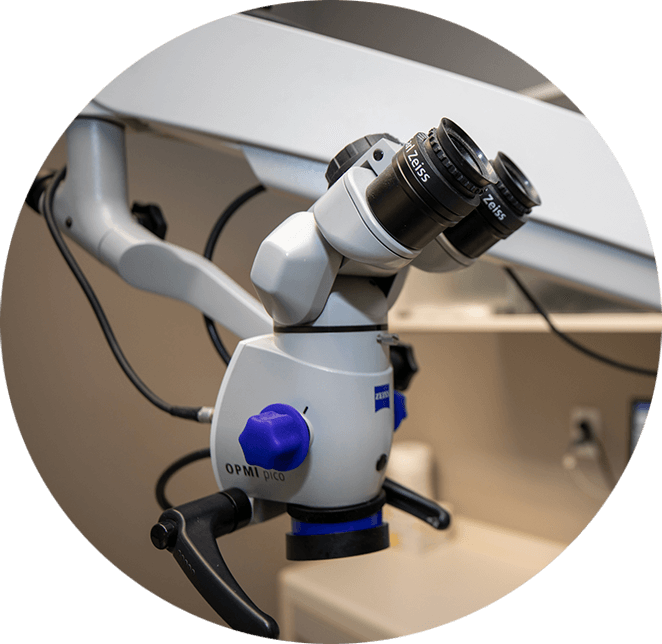
What is an Apicoectomy?
Endodontic microsurgery, more formally referred to as apicoectomy (also known as root end surgery), is performed to restore function and save a tooth after inflammation or infection persists or develops after a root canal. Unlike a root canal, an apicoectomy is a surgical approach through the gums rather than the crown of the tooth. If a root canal or root canal retreatment in Broadview & Macedonia, OH doesn’t resolve pain and inflammation in your tooth, an apicoectomy is typically the next step to save the tooth. In most cases, we’ll suggest an apicoectomy only after we determine through digital X-rays and a CBCT scan that your tooth can be saved. Most apicoectomies can be performed in 30 to 45 minutes, depending on the location of the tooth and the complexity of your root structure.

Why our endodontists may recommend an apicoectomy:
- Tooth pain that persists after root canal treatment
- Tooth gets re-infected years after a root canal
- Root surface or surrounding bone incurs damage
- Calcium deposits related to trauma or aging prevent doing a root canal
- Persistent inflammation and infection directly after a root canal due to new or recurrent decay
- Previously undetected extra canals branching from the primary canal at the root end

How is an Apicoectomy Performed?
Although we thoroughly numb your gums with local anesthesia, once your gums are numb, we drill a small hole in your gum tissue to access the infected periapical tissues, meaning the tissues around the tooth’s root end. Then we remove any inflamed or infected tissue near or around the tip of the root, along with a few millimeters of the root tip itself. The next step is to place a small filling in the end of the root canal to seal the canal and prevent further infection. We may use bone grafts and a membrane to cover the bony window that was created when we accessed your tooth root. Either self-dissolving or traditional sutures are used to ensure your gum tissues are closed and will heal properly.
Apicoectomy Recovery

Postsurgical Tips
- Ice the area for 10 to 12 hours after surgery and rest
- Take prescribed medication as directed
- Avoid brushing the area, rinsing vigorously and smoking
- Clean the area regularly
- Avoid irritating the area
- Adjust your diet as directed
- Avoid situations and activities that may cause falling or injury to your mouth
Apicoectomy Outcomes
- Age: Younger than age 45
- Procedure on upper anterior or premolar teeth
- No preoperative pain
- Lesions without gum involvement
- Absence of perforating lesions


Our Advanced Technologies
Research and technological advances have led to the refinement of techniques, materials and instruments used in apicoectomies. At Southwest Endodontics & Periodontics, Inc., we use state-of-the-art technology such as fiber-optic lights and surgical microscopes that provide an extremely accurate view of the impacted tooth root. This makes treatment faster and more comfortable, and increases the likelihood of a successful outcome.

